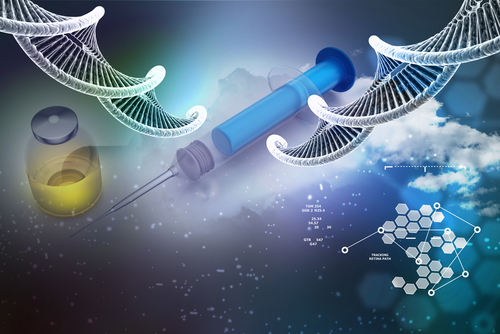Researchers at A*STAR, collaborating with other Singapore institutions, have developed a technique that improves interactions between antibodies and natural killer (NK) cells to strengthen the body’s immune system in the fight against tumor cells.
The preliminary study findings, titled “Inactivation of GDP-fucose transporter gene (Slc35c1) in CHO cells by ZFNs, TALENs and CRISPR-Cas9 for production of fucose-free antibodies.” were published in the Biotechnology Journal.
Global cancer statistics indicate that cancer affected an estimated 12.7 million individuals as of 2008, without including non-melanoma skin cancers and other non-invasive cancers. The disease involves abnormal growth of cells to form tumors with the ability to invade other parts of the body in a process called metastasis.
From the therapeutic standpoint, several treatment options exist, including surgery, chemotherapy, and radiation therapy. Another type of therapy that continues to be an area of active research is immunotherapy, which consists of stimulating the immune system to strengthen its fight against tumor cells. Some recombinant therapeutic antibodies produced in Chinese hamster ovaries (CHO) cells were found useful to fight tumor cells and have been used to treat cancer patients.
Examples of these antibodies include human immunoglobulin IgG1 that acts through binding to a target antigen found on the tumor cells. These tumor cells stimulate the NK cells by binding to their receptor called FcγRIII before killing the tumor cells through a mechanism known by antibody-dependent cellular cytotoxicity (ADCC).
To boost the ADCC activity, some studies suggested that elimination of fucose sugar from IgG1 antibodies may improve the binding affinity with FcγRIII. In this study, by inactivating a specific gene in CHO cells named Slc35cl, researchers successfully produced fucose-free IgG1 antibodies. This was performed by creating mutation at a specific site on a chromosome using three comparative gene-editing methods. They then utilized a fluorescent cell-sorting process to identify and isolate the cells carrying the mutant genes of interest.
The results suggested that all three tested gene-editing methods successfully inactivated Slc35cl to induce fucose-free antibodies. However, one of the techniques was faster and simpler than the others. The data also showed that inactivation of Slc35cl had no influence on vital parameters like cell growth, cell density, and antibody productivity.
“Other methods exist to generate fucose-free antibodies, but some simply reduce the level of fucose rather than eliminating it,” corresponding author Dr. Zhiwei Song, of the Bioprocessing Technology Institute at A*STAR in Singapore, said in the press release. “Earlier studies investigated the removal of a different gene involved in transferring fucose to IgG1, for example. Our new technique provides a feasible strategy for creating fucose-free antibodies, and cell lines can be produced in less than two months.”
These fucose-free antibodies are of potential interest for future therapies, notably for breast cancer and leukemia.
“Our hope is to collaborate with biotechnology companies to generate anti-cancer antibodies on a larger scale in future,” Song said.


